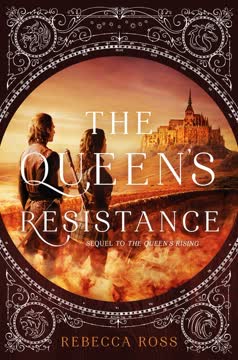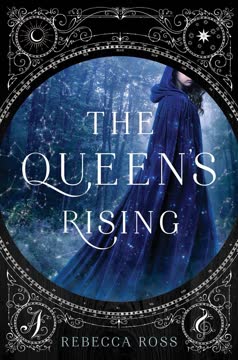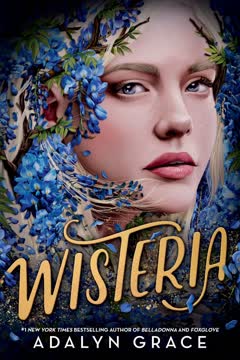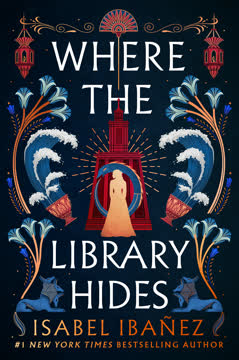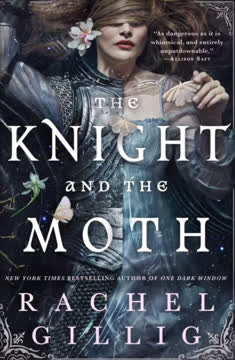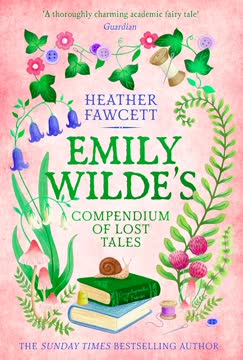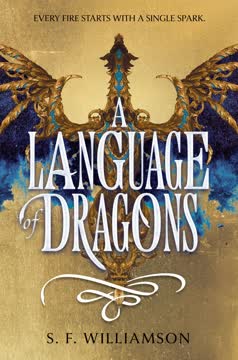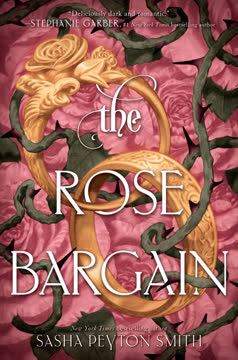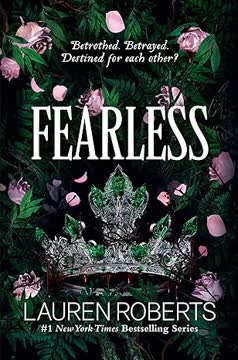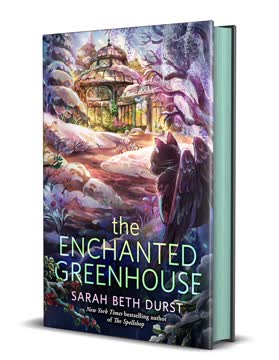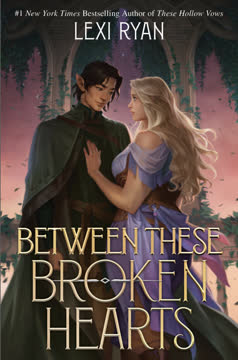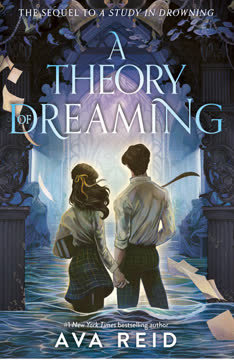Plot Summary
After the Revolution's Dawn
The revolution that restored Queen Isolde to Maevana's throne has ended, but the land is far from healed. Brienna, now a mistress of knowledge and adopted daughter of Lord Davin MacQuinn, returns to a castle still haunted by the scars of Lannon tyranny. The MacQuinns, wary of her Allenach blood, struggle to accept her. Meanwhile, Cartier—now Aodhan Morgane—returns to his ruined ancestral home, determined to rebuild. Both Brienna and Cartier must navigate their new roles, balancing personal longing with the demands of a country in transition. The revolution's victory is only the beginning; the true test lies in forging unity, justice, and trust in a realm still trembling from decades of darkness.
Castles, Cloaks, and Shadows
As Brienna settles into Castle Fionn, she faces suspicion and whispers about her Allenach heritage. Cartier, inheriting the crumbling Morgane estate, discovers a mysterious orphan, Tomas, and wonders if he can build a new family. The MacQuinns and Morganes begin to gather their scattered people, restoring halls and hearts. Yet, beneath the surface, old rivalries and wounds fester. The return of the rightful queen has not erased the pain of the past, and both Brienna and Cartier must prove themselves to their Houses. Their love, once a secret, now faces the scrutiny of family and the weight of political alliances.
The Enemy's Daughter
Brienna's presence at Castle Fionn is a daily reminder of the past. The MacQuinns, who suffered under Allenach's rule, eye her with suspicion. Brienna, torn between her Valenian upbringing and Maevan blood, longs to belong. She finds solace in her new family—her adoptive father Jourdain and brother Luc—but the shadow of her biological father, Brendan Allenach, lingers. As she helps gather grievances for the upcoming Lannon trial, Brienna must confront her own sense of worth and the question of whether she can ever truly be a MacQuinn.
Chains of the Past
Cartier, now Lord Morgane, explores the ruins of his childhood home, uncovering both physical and emotional wreckage. He finds Tomas, a red-haired orphan with a mysterious past, and takes him in. The castle's stones bear the scars of Lannon occupation, and Cartier is forced to confront the truth of his own lineage—his mother was a Lannon, making him half of the blood he once despised. The past is not easily buried, and both Brienna and Cartier realize that the chains of history bind them more tightly than they wish.
Gathering Grievances
As the trial of the Lannons approaches, Brienna and Luc collect the stories of suffering from the MacQuinn people. Brienna faces resistance and prejudice, especially from the women, but finds an unexpected ally in Neeve, a weaver with a hidden connection. The process of gathering grievances is both cathartic and harrowing, forcing the community to relive trauma. Meanwhile, alliances and rivalries among the Houses threaten the fragile peace. The question of how to balance justice and mercy looms, as does the fear that old hatreds may ignite new violence.
The Lannons on Trial
The day of the trial arrives, and the castle green fills with people hungry for justice. One by one, the Lannons—Gilroy, Oona, Declan, and Keela—are brought forth, their crimes read aloud. The crowd's fury is palpable, and the verdict is swift: execution for the entire family. Yet, when Keela, a child, is condemned alongside her elders, the cost of Maevana's bitter justice becomes clear. Brienna, Cartier, and Isolde are left to grapple with the consequences of vengeance and the possibility of breaking the cycle of violence.
The Bitter Price of Justice
The trial's aftermath is heavy with grief and doubt. Keela's execution is set, despite pleas for mercy. Ewan, Declan's young son, is revealed to be Tomas, the orphan Cartier sheltered. Isolde, torn between justice and compassion, secretly entrusts Ewan's safety to Cartier. The lines between victim and perpetrator blur, and the leaders of Maevana must decide whether to uphold tradition or forge a new path. The cost of justice weighs on every heart, threatening to unravel the fragile unity they have fought to build.
Hidden Loyalties, Secret Betrayals
As the Houses maneuver for power, old loyalties are tested. Brienna uncovers that her half-sister Neeve is also Allenach's daughter, a secret that binds them in unexpected ways. The Hallorans, once Lannon allies, seek to ingratiate themselves with the new regime, but their motives are suspect. Pierce Halloran, spurned by Brienna, plots revenge. Within the MacQuinns, betrayal festers—Thorn, the trusted chamberlain, is revealed as a half-moon loyalist. The threat of a new uprising grows, and Brienna's safety is no longer assured.
The Snare Tightens
Declan Lannon, aided by Halloran conspirators, escapes the dungeons and orchestrates Brienna's abduction. Betrayed by those she trusted, Brienna is taken to Castle Lerah, the Halloran stronghold, and held as a bargaining chip. Declan demands the Stone of Eventide in exchange for her life, hoping to seize Maevana's magic and the throne. As the days slip by, Brienna endures torture and isolation, clinging to hope as her friends and family race to find her. The snare of old enmities threatens to strangle the new peace.
The Queen's Ultimatum
Declan's ultimatum forces Isolde and her council to a crossroads: surrender the Stone and risk Maevana's future, or sacrifice Brienna. The queen refuses to negotiate with tyrants, but the cost is nearly unbearable. Cartier, torn between duty and love, is haunted by the possibility of losing Brienna. The Houses must unite for a daring rescue, and old wounds must be set aside for the sake of the realm. The fate of Maevana—and Brienna—hangs in the balance.
Blood and Betrayal
The assault on Castle Lerah is swift and brutal. Grainne Dermott leads her warriors, while Cartier, Luc, and Sean infiltrate the fortress. Neeve, Brienna's half-sister, plays a crucial role in the rescue. Declan is slain by Cartier in a final, cathartic confrontation. Brienna, scarred but alive, is brought home. The cost of betrayal is high—Thorn is exposed and executed, and the Hallorans are stripped of power. Yet, in the aftermath, new bonds are forged, and the survivors must reckon with the ghosts of their choices.
The Lady of Morgane
As Maevana heals, Cartier discovers that his mother, Lile Morgane, long thought dead, has survived decades of captivity. Their reunion is bittersweet, a testament to endurance and hope. Brienna, now scarred and changed, finds strength in her pain and the love of those around her. Ewan and Keela, the last Lannon children, are pardoned and given new homes. The Houses, once divided, begin to weave a new tapestry of unity. The past cannot be undone, but the future is theirs to shape.
Between Darkness and Light
The day of Isolde's coronation arrives, and the people of Maevana gather in Mistwood to witness the rise of their queen. Brienna, chosen as Isolde's counselor, stands at her side, bearing the Stone of Eventide. The ceremony is both ancient and new, a promise that the darkness of the past will give way to the light of a just and magical future. The Houses swear fealty, and the wounds of war begin to heal. The realm stands poised between darkness and light, ready to embrace hope.
The Queen Rises
The coronation feast is a tapestry of Maevana's diversity—old enemies break bread, new alliances are forged, and the scars of the past are honored but not allowed to define the future. Brienna, now fully accepted as both MacQuinn and Allenach, dances with her friends and family. Cartier, at her side, finds peace in love and belonging. The queen's reign begins not with fear, but with joy and the promise of a better world. The people of Maevana, at last, are free to meet the light.
The Best of Your House
Cartier, determined to prove himself worthy of Brienna, undertakes the MacQuinn tradition of finding the hidden golden ribbon in a tapestry. The challenge is both a test of patience and devotion, and when he succeeds, he wins not only Brienna's hand but the acceptance of her House. Their union symbolizes the healing of old wounds and the forging of a new legacy. Together, they embody the best of their Houses—steadfastness, swiftness, and the courage to love in the face of darkness.
To Meet the Light
As Maevana enters a new era, Brienna reflects on her journey from orphan to mistress, from outcast to counselor, from enemy's daughter to beloved. She writes her story, honoring the pain and the triumph, the losses and the love. The scars she bears are not marks of shame, but of survival and hope. Surrounded by family, friends, and the man she loves, Brienna steps into the light of a future she helped create—a future where the past is remembered, but no longer rules.
Characters
Brienna MacQuinn
Brienna is the adopted daughter of Lord Davin MacQuinn and the biological child of Brendan Allenach, making her both a symbol of Maevana's divisions and its hope for unity. Raised in Valenia, she is a mistress of knowledge, fiercely intelligent, and deeply empathetic. Brienna's journey is one of self-acceptance—she must overcome prejudice, prove her worth, and reconcile her dual heritage. Her relationships—with Jourdain, Luc, Cartier, and her half-sister Neeve—are marked by loyalty and vulnerability. Brienna's psychological arc is defined by her struggle to belong, her courage in the face of trauma, and her ultimate embrace of both her scars and her strengths. Through love, loss, and leadership, she becomes the heart of Maevana's new era.
Aodhan Morgane (Cartier Evariste)
Cartier, once Brienna's instructor, is now Lord Morgane, burdened by the legacy of a ruined House and a lineage that includes both Maevan and Lannon blood. He is intellectual, reserved, and deeply principled, yet struggles with feelings of inadequacy and guilt. His relationship with Brienna is both passionate and fraught, as he fears his love makes him vulnerable. Cartier's journey is one of reclaiming identity—restoring his House, accepting his past, and forging a new family with Brienna and the orphaned Ewan. The revelation that his mother, Lile, is alive brings catharsis and healing. Cartier's psychological depth lies in his ability to balance justice with mercy, intellect with emotion, and tradition with change.
Isolde Kavanagh
Isolde is the rightful queen of Maevana, thrust into power after years in hiding. She is compassionate, wise, and burdened by the weight of her House's near-extinction. Isolde's magic, centered on healing, reflects her desire to mend both people and country. Her relationship with Brienna is one of deep trust and mutual reliance—she chooses Brienna as her counselor, recognizing her unique perspective. Isolde's psychological arc is defined by her struggle to balance justice and mercy, tradition and progress, and her fear of magic's potential for corruption. Her reign marks the beginning of a new era, one that honors the past but refuses to be shackled by it.
Davin MacQuinn (Jourdain)
Jourdain, once in exile, returns to reclaim his House and guide his people through the aftermath of tyranny. He is protective, pragmatic, and deeply scarred by loss—his wife, Sive, was murdered during the first failed rising. Jourdain's relationship with Brienna is transformative; he learns to love her as his own, despite her Allenach blood. As a leader, he must balance the demands of justice with the need for reconciliation. Jourdain's psychological journey is one of forgiveness—of himself, his people, and the past. His ability to trust and empower Brienna is a testament to his growth and the healing of Maevana.
Luc MacQuinn
Luc, Brienna's adoptive brother, is a master of music and a source of levity and warmth. He is fiercely protective of his family, quick-witted, and adaptable. Luc's role is often to mediate conflicts, provide emotional support, and remind others of the importance of joy and art. His relationship with Brienna is one of genuine sibling affection, and his friendship with Merei adds depth to his character. Luc's psychological arc is subtler, focused on finding his place in a world reshaped by war and learning to lead with both heart and humor.
Neeve
Neeve is Brienna's half-sister, the illegitimate daughter of Brendan Allenach and a MacQuinn weaver. Scarred by illness and raised in secrecy, Neeve is gentle, resilient, and fiercely loyal. Her bond with Brienna is forged through shared pain and the gradual revelation of their kinship. Neeve's psychological journey is one of self-worth—learning to claim her place in the world, resist oppression, and act with courage when it matters most. Her role in Brienna's rescue is pivotal, and her presence symbolizes the possibility of healing even the deepest wounds.
Declan Lannon
Declan is the son of Gilroy Lannon, raised in violence and destined for darkness. He is manipulative, intelligent, and capable of both cruelty and twisted affection. Declan's psychological complexity lies in his self-awareness—he knows he is a product of his father's brutality, yet cannot escape it. His obsession with power and control leads him to kidnap and torture Brienna, but his final confrontation with Cartier reveals a fractured soul, haunted by love and loss. Declan's death marks the end of an era and the possibility of breaking the cycle of violence.
Ewan Lannon (Tomas)
Ewan, Declan's son, is first introduced as Tomas, an orphan taken in by Cartier. He is resourceful, brave, and desperate for belonging. Ewan's journey is one of transformation—from a pawn in his father's schemes to a child given a new home and identity. His relationship with Cartier and Brienna is marked by trust and affection, and his actions in aiding Brienna's escape are redemptive. Ewan's psychological arc is about overcoming fear, choosing goodness, and forging a new legacy.
Keela Lannon
Keela, Declan's daughter, is condemned for her family's crimes but ultimately saved by Brienna's advocacy. She is traumatized, fearful, and yet capable of great courage. Keela's journey is one of survival—learning to trust, to hope, and to accept mercy. Her adoption by the MacQuinns offers her a chance at a new life, and her bond with Ewan is a testament to the resilience of the human spirit.
Lile Morgane
Lile, Cartier's mother, is a survivor of unimaginable suffering—imprisoned, mutilated, and silenced for decades. Her return is a miracle, a symbol of hope and the possibility of healing. Lile's psychological journey is one of reclaiming agency, reconnecting with her son, and finding peace in a world that once betrayed her. Her presence is a balm to the Morganes and a reminder that even the deepest wounds can be mended.
Plot Devices
Dual Narration and Ancestral Memory
The novel alternates between Brienna and Cartier's points of view, allowing readers to experience both the personal and political stakes of Maevana's transformation. This dual narration deepens the emotional resonance, highlighting the parallel journeys of two outsiders seeking belonging. Ancestral memory serves as a key plot device—Brienna inherits the memories of Tristan Allenach, which guide her to the Stone of Eventide and connect her to the land's ancient wounds. This device blurs the line between past and present, emphasizing the cyclical nature of trauma and the possibility of redemption. Foreshadowing is woven through dreams, legends, and the recurring motif of hidden ribbons and scars, signaling that healing requires both remembering and reimagining the past.
Political Intrigue and Public Justice
The narrative is structured around pivotal public events—the Lannon trial, the coronation, and the rescue of Brienna. These set pieces are not merely spectacles but crucibles in which characters' values are tested. The use of public grievances, open trials, and the weighing of justice versus mercy foregrounds the tension between tradition and progress. Political alliances and betrayals drive the plot, with shifting loyalties and secret half-moon marks serving as both literal and symbolic threats. The tapestry challenge, a recurring motif, encapsulates the novel's themes: worthiness is proven not by birth, but by perseverance, patience, and love.
Trauma, Healing, and the Power of Story
The novel is deeply concerned with the psychological aftermath of violence—how individuals and communities process trauma, seek justice, and find hope. Physical scars (Brienna's face, Lile's hand) and emotional wounds are not hidden but honored as marks of survival. The act of storytelling—whether through Brienna's writing, the gathering of grievances, or the sharing of ancestral memories—becomes a means of healing and forging new identities. The narrative structure itself, with its interwoven perspectives and layered histories, mirrors the process of weaving a new tapestry from the threads of the past.
Analysis
Rebecca Ross's The Queen's Resistance is a meditation on the aftermath of revolution and the arduous work of healing a fractured society. The novel interrogates the meaning of justice, the dangers of vengeance, and the necessity of mercy. Through Brienna and Cartier's intertwined journeys, Ross explores how identity is shaped by both blood and choice, and how true belonging is earned through acts of courage, compassion, and self-acceptance. The story's political intrigue and public rituals foreground the challenges of building a just society—one that honors the pain of the past without being shackled by it. The scars borne by the characters are not marks of shame, but of survival and hope, reminding readers that healing is possible, but never easy. In a modern context, the novel resonates as a call to reckon honestly with history, to seek justice without losing sight of humanity, and to believe that even the deepest wounds can be mended through love, truth, and the courage to meet the light.
Last updated:
Review Summary
The Queen's Resistance is praised as a strong sequel, improving upon its predecessor with enhanced pacing, character development, and political intrigue. Readers appreciate the focus on rebuilding after a revolution, the exploration of family bonds, and the satisfying romance between Brienna and Cartier. Some critics felt the book was unnecessary or lacked sufficient magic, but most found it an engaging and emotionally resonant conclusion to the duology. The series is described as underrated, with many recommending it highly for its unique blend of fantasy and politics.
